Review: THE BEDWETTER at Arena Stage
A young Sarah Silverman grabs the mic with nothing to lose.
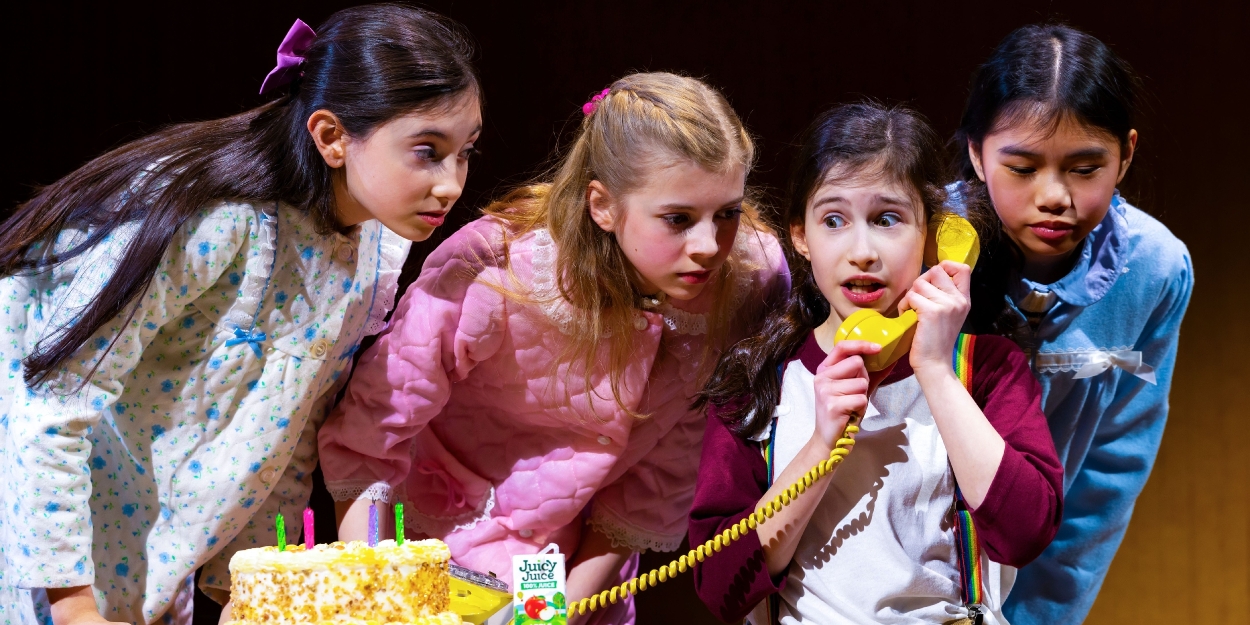
How do you handle the soul-crushing despair of family dysfunction and loss, all on top of an embarrassing secret? 10 year-old Sarah Silverman has the answer: you put yourself in front of a crowd and tell jokes about what hurts most.
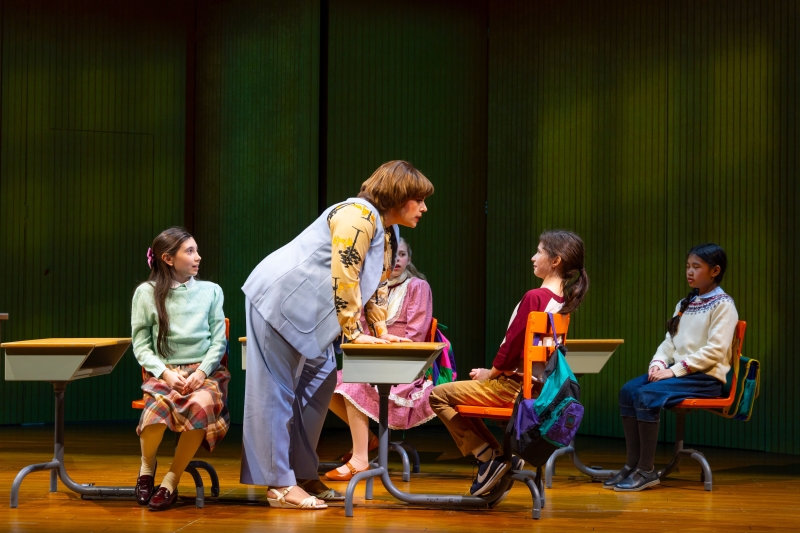
In the musical The Bedwetter, this young heroine takes center stage during the toughest year of her life so far. Based on comedian Sarah Silverman’s 2010 memoir of the same name, subtitled “Stories of Courage, Redemption, and Pee,” the show arrives at DC’s Arena Stage in a new production following its initial off-broadway run in 2022. This version of the show is tighter, at under 100 minutes, and unlike the original production, flies by in a single act. The Bedwetter tells a story about being thrust into the angst of adulthood without anyone asking for your permission. It uses crass and sometimes corny jokes to explore themes of broken family bonds, depression, being Jewish, and being different. But it’s not just for sad Jews with a high tolerance for bathroom humor (like this critic). Anyone who has ever cracked a joke to ease their pain—or to help someone else feel seen—can see themselves in Sarah.
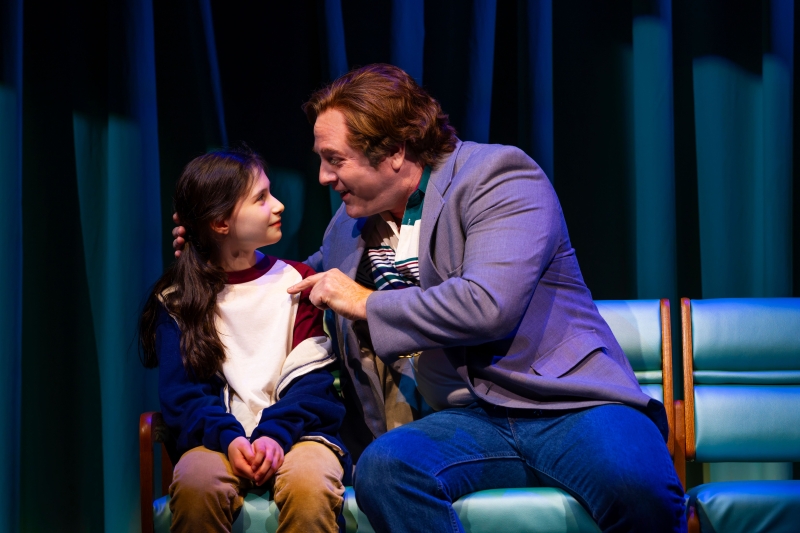
The Bedwetter begins with Sarah (Aria Kane) introducing herself on her first day at a new school. She is hyper-aware of how she presents herself while buzzing with unfiltered energy that can only be found in a kid. Shocking the teacher, she drops enthusiastic f-bombs while sharing her life story with the class. While they don’t know her terrible secret yet, Sarah’s classmates can tell that she’s not like them. She is a Jew among mostly-WASPs and a jokester among the stiff-upper-lipped. Sarah has learned to deflect harsh observations with a shrug. Hairy arms? “I couldn’t agree more,” Sarah sings. Acting weird? “I couldn’t agree more.” Did we mention Jewish? Despite not seeming to go to temple much, this is an especially hard one for Sarah to escape.
The show, indeed, is very Jewish—not because of a focus on religious tradition but because of a creative team pulling from a history of turning pain into the painfully funny. The writing team of Sarah Silverman herself (book and lyrics), Joshua Harmon (book), Adam Schlesinger (music and lyrics), and David Yazbek (additional music and lyrics) build on this legacy to create an eclectic, earwormy piece. Many songs, especially “You Can’t Fix Her” and “When I Was Nine,” beg for a cast recording to allow for second and third listens. The influence of Adam Schlesinger’s unmistakable voice is bittersweet, since this was the final project he worked on before dying of Covid-19 at age 52. The Venn diagram of people who would enjoy Crazy Ex-Girlfriend—the TV show that Schlesinger co-wrote songs for with Rachel Bloom—and those who will appreciate The Bedwetter is a near-perfect circle.
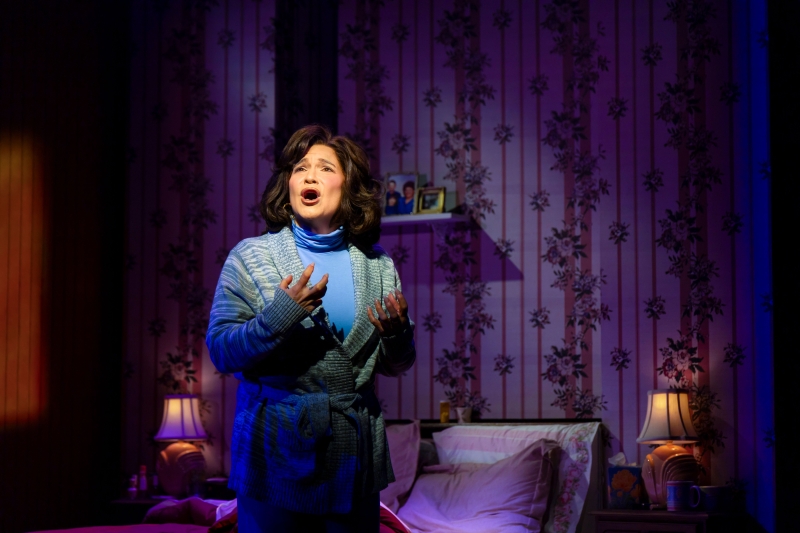
A musical with this much sadness and intensity is not something you’d expect to see helmed by kids. And Annie this is not. Kane as Sarah carries the show on her small shoulders, capturing the rollercoaster ride of her character’s journey with a wisdom beyond her years. She is backed up by excellent performances from Avery Harris as her scene-stealing big sister, Laura, as well as Emerson Holt Lacayo, Elin Joy Seiler, and Alina Santos as a pitch-perfect trio of classmates. (A special shoutout to Santos, who sang with unflappable poise during a brief microphone malfunction on opening night.)
The non-kids sing their hearts out too. Shoshana Bean as Sarah’s mother, Beth Ann, brings her incredible vocal chops and star power to some of the show’s most wrenching moments. Ashley Blanchet’s Miss New Hampshire pairs deadpan absurdity with a belt that brings the house down multiple times. Liz Larsen simultaneously charms and mortifies us as Nana. Her solo “To Me” incorporates pauses seemingly to leave room for gasps and giggles. After the show, some Millennial audience members laughed that Nana’s compliments with a twist brutally captured the Jewish grandma brand of affirmation.

As any memory play should, The Bedwetter uses thoughtful production design to conjure an alternatingly sharp and hazy past. Anne Kauffman’s direction guides us through the landscape of Sarah’s childhood in ways that reflect the unevenness of memory. Appropriately, things don’t ever feel just right. The costumes by Kaye Voyce anchor the show in 1980s New Hampshire but later take us to more fanciful realms (one including a tap-dancing lineup of Xanax pills). The creative set (David Korins), lighting (Japhy Weideman), and video design (Lucy Mackinnon) transport us through trippy dream sequences, peppy commercials that give way to disturbing discoveries, an episode of questionable hypnosis, and drug and cartoon-induced catatonia.
But reality never fails to break through. We learn very early on that Sarah had a brother, Jeffrey, who died when he was just three months old. His presence—and the Silverman family’s resulting “issues with beds”—hangs over Sarah’s life, and the entire show. Each character handles the tragedy differently, but all of them are stuck with its echoes. The Bedwetter does not have answers for how it all will get better, but it does have some thoughts on what can be made possible when we share our secret pain with the world. As long as we don’t take ourselves too seriously while doing it.
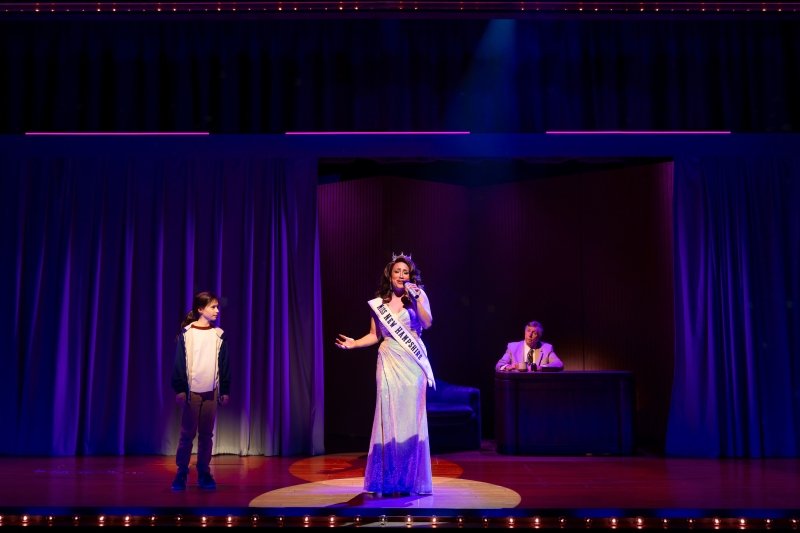
So, when staring down the humiliations of bedwetting, adolescence, a fractured family, and death itself, what’s a young girl to do? This is the central question of The Bedwetter, and the existence of the show provides the answer. Sarah must decide whether to share her story, pee-stained sheets and all. In the end, Sarah grabs the mic, and opens her heart. Yours will too.
Running time: Approximately 1 hour 40 minutes without an intermission
The Bedwetter will be at Arena Stage’s Kreeger Theater (1101 Sixth Street SW Washington, DC 20024) through March 16, 2025. Tickets can be purchased here, and transportation and parking information can be found here. The production includes haze, strobe lights, flickering lights, herbal cigarettes, strong language, and themes relating to mental health crises. Arena Stage recommends but does not require that patrons wear facial masks (for the latest information, go here).
Reader Reviews
Videos

